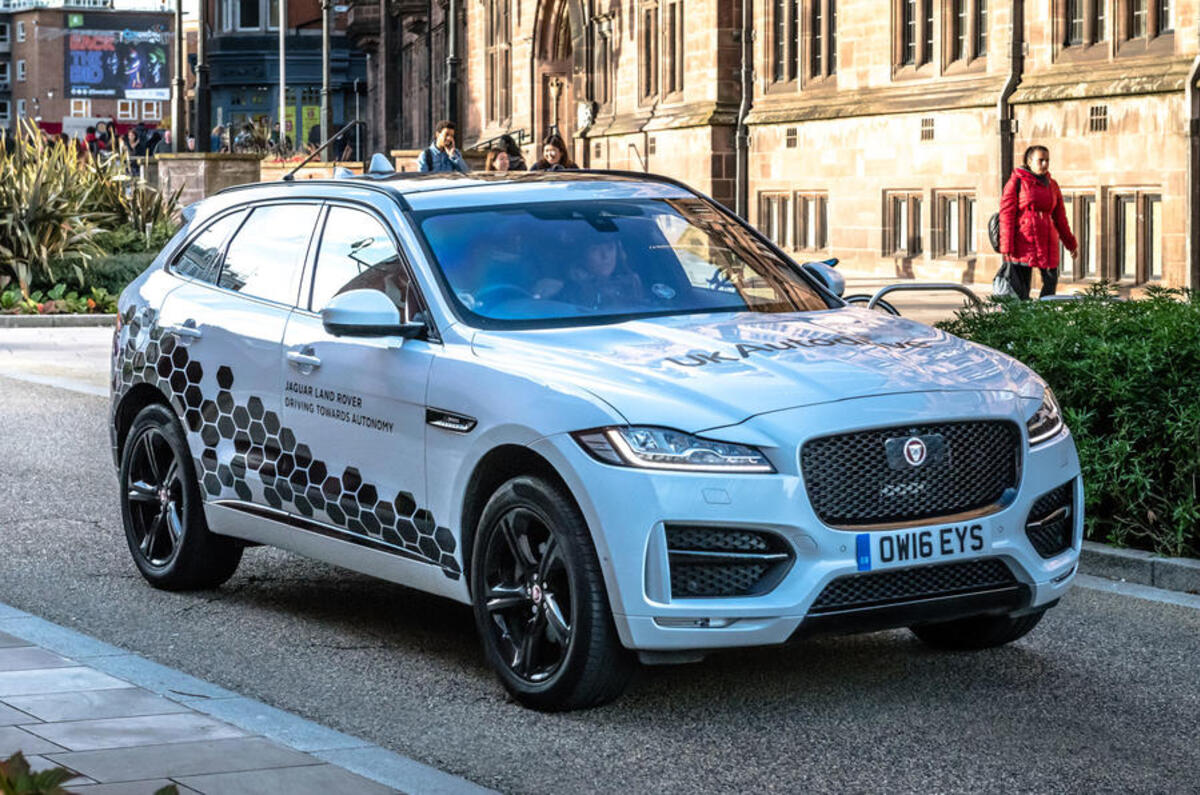Self-driving cars without a human behind the wheel will be allowed to run freely on UK roads from 2021, the chancellor has announced in the Autumn Budget.
The plans by Philip Hammond are one of a host of measures intended to boost the automotive and technology industries.
A number of UK companies have recently ramped up testing of autonomous cars. Only last week, a partnership of Jaguar Land Rover, Ford and Tata Motors confirmed it had taken its self-driving trial to public roads for the first time.
Greenwich in south London and Olympic Park in Stratford are also two key hubs for trials of autonomous cars.
However, these current trials must have a human in the driving seat in case something goes wrong. The new rules, which will mean a change to the Road Traffic Act, will allow testing without a driver at the wheel.
The plans will help the UK catch up with countries such as America and Singapore, both of which have been leading the way with self-driving research.
In the US, Uber is running a self-driving taxi service in Pittsburgh, Pennsylvania but drivers have needed to take control to avoid an incident on a number of occasions.
More notably, Google’s self-driving firm Waymo announced earlier this month that it will now offer a fully autonomous taxi service in a suburb of Pheonix, Arizona without a driver behind the wheel.
By removing the current legal constraints, many of which still apply in mainland Europe and large parts of the US, Hammond will allow the UK to become a world leader in self-driving cars.
The news follows transport secretary Chris Grayling’s announcement that car insurance policies will be overhauled to accommodate autonomous cars, one of the major issues surrounding their introduction.
Talking about the Autumn Budget announcement, SMMT chief executive Mike Hawes said: “We support government’s measures to make the UK one of the best places in the world to develop, test and sell connected and autonomous vehicles. These vehicles will transform our roads and society, dramatically reducing accidents and saving thousands of lives every year, while adding billions of pounds to the economy.
“We look forward to continuing industry’s collaboration with government to ensure the UK can be among the first to grasp the benefits of this exciting new technology.”
Nissan GB managing director Alex Smith welcomed the changes to driverless legislation. He said: “Today’s statement is a clear sign that the UK is fully committed to embracing the potential of autonomous cars. As a technology still in its formative years, cross-sector support is invaluable. Nissan welcomes this announcement as we accelerate the development and deployment of autonomous cars, which are destined to play a significant role in the future of the automotive industry.”
Other initiatives announced in the Autumn Budget include a £400m pot for electric car charging points and £100m for plug-in car grants.
The war on diesel drivers has also continued, with Hammond increasing the tax for diesel vehicles that don't conform to the very latest real-world driving emissions test.




Join the debate
Add your comment
Not in the real world.
Does anyone know how these cars will react to a horse in the road or on the verge?
If a group of children were waiting at a bus stop there would be no reason for the car to slow down but would it do so if they were kicking a ball around?
In heavy traffic drivers often allow others infront of them with a nod or hand gesture. How would a driverless car react in such situations?
Overall I think the potential problems far outweigh the benefits.
Level 5 and beyond
From 2030 in London.
With the derranged enthusiasm
With the derranged enthusiasm for diesel (by both the govenment and Autocar) quickly replaced with an obsession with automomy, can we assume that the problem of culpabiliy in an accident has been addressed?
I have to confess that autonomy is the very last thing I would want in my car. I would certainly pay for a delete option.